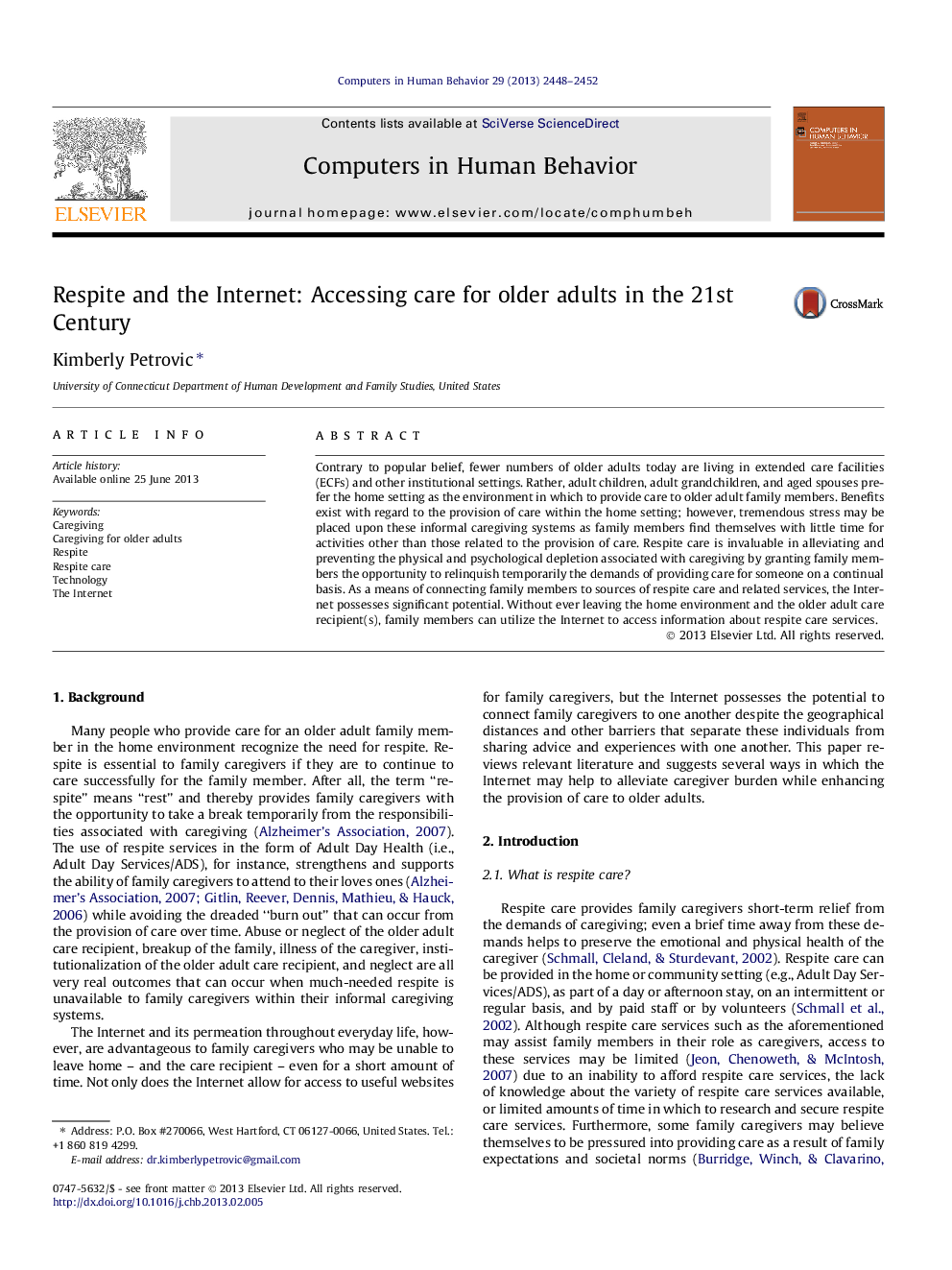| Article ID | Journal | Published Year | Pages | File Type |
|---|---|---|---|---|
| 350838 | Computers in Human Behavior | 2013 | 5 Pages |
Contrary to popular belief, fewer numbers of older adults today are living in extended care facilities (ECFs) and other institutional settings. Rather, adult children, adult grandchildren, and aged spouses prefer the home setting as the environment in which to provide care to older adult family members. Benefits exist with regard to the provision of care within the home setting; however, tremendous stress may be placed upon these informal caregiving systems as family members find themselves with little time for activities other than those related to the provision of care. Respite care is invaluable in alleviating and preventing the physical and psychological depletion associated with caregiving by granting family members the opportunity to relinquish temporarily the demands of providing care for someone on a continual basis. As a means of connecting family members to sources of respite care and related services, the Internet possesses significant potential. Without ever leaving the home environment and the older adult care recipient(s), family members can utilize the Internet to access information about respite care services.
► Caregivers for older adult family members recognize the need for respite. ► The Internet is advantageous to family caregivers who are unable to leave the home. ► Social networking and useful websites on respite care are accessible to caregivers. ► The Internet may be instrumental in providing caregivers with respite.
